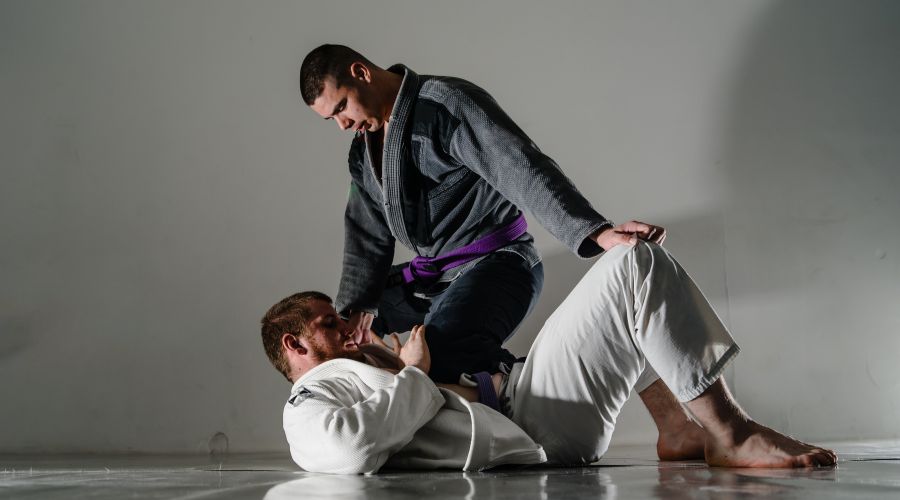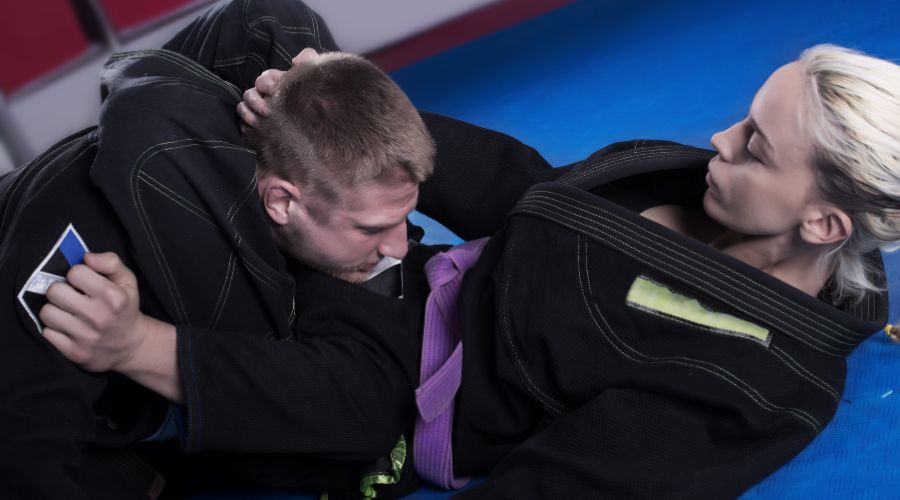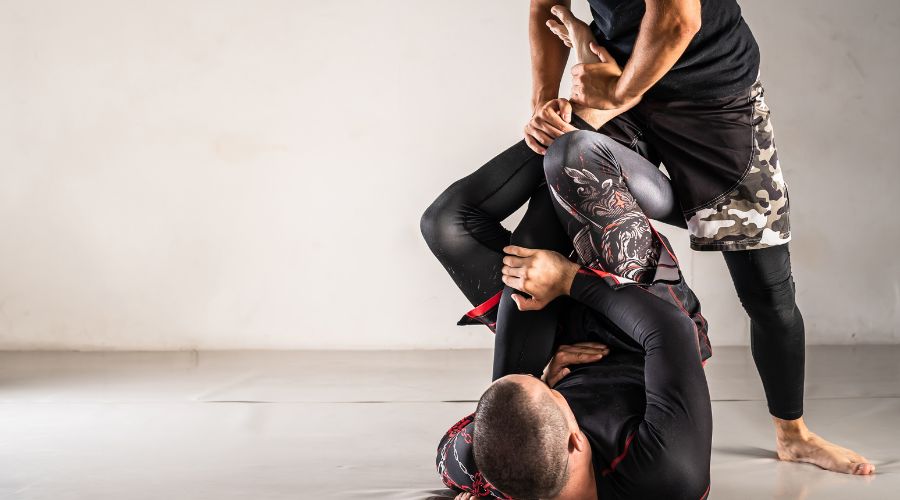Brazilian jiu-jitsu has helped many people reach their fitness goals, lose weight, and get in good shape. Everybody loves a success story, and the BJJ academy is the home of many in fitness and life. But how exactly does BJJ aid in weight loss?
You must eat and drink fewer calories than you burn to lose weight. This is known as being in a caloric deficit. BJJ offers little help in terms of diet, but it is an amazing and intense workout that will burn calories and help you lose weight.
As good a workout as BJJ is, it won’t be enough to get you ripped. You will need a proper diet and strength training, but do you know how to eat and train for healthy and sustained weight loss?
The Weight Loss Formula
The formula for losing or gaining weight is straightforward, at least on the grand scale. To lose weight, you need to be in a caloric deficit, meaning you need to consume fewer calories than you spend throughout the day.
Of course, there is a big difference in where the calories come from and many effective diets, but the principle remains the same. Eat less than you burn, and you will lose weight.
You can do this in a couple of ways. You either reduce the calories from food and drink or continue eating the same amount but start moving more, be it BJJ, walking, running, lifting weights, or countless other options.
There are a lot of different factors that determine weight loss, like hormone levels and genetics, but they are strictly individual.
We will touch more on the diet part later, but first, let’s see how BJJ fits into the equation.
Is BJJ Good For Losing Weight?

Brazilian jiu-jitsu is an excellent full-body workout challenging all muscle groups and all energy systems. A standard 90-minute session is enough for most people to tackle their daily movement needs. BJJ can be a significant factor in the quest to be in a caloric deficit and thus lose weight.
Especially sessions with hard rolling become very high-intensity affairs, and you will burn a lot of calories while sweating in the gym and after training from what is known as the afterburn effect. This effect is due to post-exercise oxygen consumption used to refuel the body with oxygen, remove lactic acid, and rebuild the muscles using calories.
More intense workouts lead to more pronounced afterburn effects, so the more you push on the mats, the more calories will be burned during the training and up to 36 hours after it.
Another less scientifically proven way BJJ helps with weight loss is you will likely build healthier eating and living habits if you train regularly and want to be competitive.
Jiu-jitsu and its community are not only a sport but a lifestyle, and like any sport, a clean diet is necessary for optimal results. I can bet that if you are around shredded grapplers all the time, you will want to become one and take the steps required to achieve it.
How Many Calories Are Burned During BJJ Training

There is no other way of saying it, but the numbers you find online are entirely made up. There is no realistic way to calculate exactly how many calories you have burned during training. This depends on so many individual factors that no calculation can be entirely correct.
Modern fitness tracking devices take some personal measurements, heart rate levels, and other factors into account and make decent estimates of how many calories you are burning. Still, you cannot rely on the numbers being 100% accurate.
BJJ Diet To Lose Weight
Diet is a touchy subject with many conflicting ideas and concepts. They all have in common that you should stay away from highly processed foods and, overall, things considered junk food.
Every online or app calculator will tell you your estimated calories for weight maintenance, weight loss, and weight gain. Based on this, you should start tracking everything you eat.
This is a tiresome task for me, but a necessary one, at least for a time. After you’ve done it for a couple of months, you will have an excellent idea of how much you are eating, even without needing an app.
It’s important to know not all calories are equal, and macronutrients matter a lot and will determine what fuel your body is using and what weight you are losing—fat or muscle.
Sufficient protein is crucial to building and retaining muscle mass, so we start with it. 1.6 g of protein per kg of body weight (0.8 g per lb) should be enough for most people, but some go up to 2.2 g per kg (1 g per lb).
The debate over fat vs. carbs is complicated. High-fat, low-carb eating has become much more popular, even among athletes. However, carbohydrates are still needed and are the optimal fuel for high exertion.
A basic rule of thumb can be that if you train a lot, eat more carbs; if you train and move around less, eat less carbs.
If you are reading this, you are likely training BJJ and some strength training, so you can’t go wrong by taking your calories in the following proportions:
45-50% carbohydrates
25-30% protein
25-30% fat
Experiment with the macros and foods, keep an accurate log of your eating, track your weight every morning, and remember or write down how you feel. This way, you will find a personal diet that will work for your goals.
How to Calculate Everything

The complete formula for how many calories you need and how many you get includes the following:
- Basal metabolism– the calories your body burns without doing anything. This is the energy that you need to sustain all vital functions. This energy is used regardless of your activity level. Basal metabolism strongly depends on muscle mass, age, hormone levels, environmental conditions, etc.
- Activity level- This is your overall activity level for the day, excluding workouts. If you work hard labor, you will expend drastically more calories than a person in an office job.
- Training- The third factor is the training you do. This includes BJJ and other complementary training like lifting weights, running, swimming, yoga, etc.
Many fitness calculators will track your data, including how much you train and what type of work you do during the day. They will estimate how many calories you need for weight maintenance, weight loss, or weight gain if that is your goal. Again, don’t take the numbers you see on the screen on faith, as there are too many factors that an app cannot consider.
Your exact muscle mass, metabolism, how warm and humid the environment is, and so on all play a part in energy consumption in the body. The afterburn effect is also impossible to measure effectively, so none of the formulas you can use give you the whole picture.
They can still be used as a general estimation and a guideline since we don’t have other options anyway.
What matters is being consistent with your training and diet. Tracking calories and macronutrients is much more accurate than calculating calories burned, so you should focus on what you eat and let training take care of the rest.
You will surely lose weight if you are on point on the mats and with your diet. And with the right macronutrient balance, the lost weight will be fat, not muscle.
Summary
Like any physical exercise, BJJ is good for burning calories and helping you get into a caloric deficit. Many variables factor into weight loss and weight gain, but you have the most control over how you eat and train. Be strict on the table and on the mats, and the results will come sooner rather than later.
